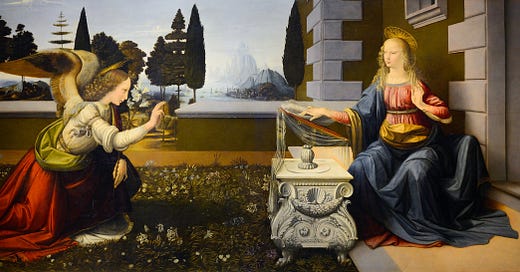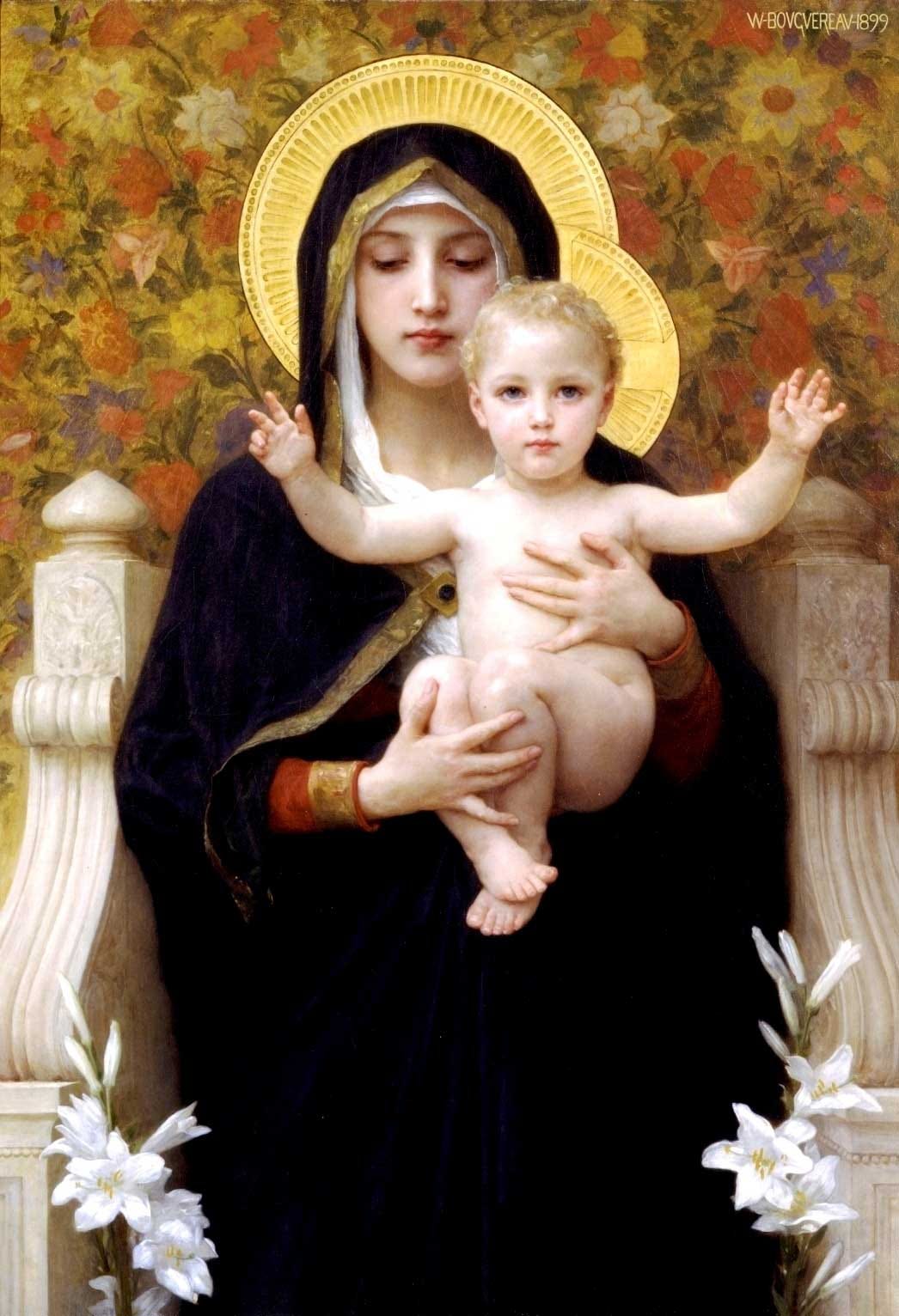Frequently people have asked me regarding my writing and lecturing, “Why do you have to call God “He?” To them that connotes a patriarchal prejudice that gives the Creator of All Things a masculine identity, to which they understandably object.
But for me, it doesn’t. There are male and female plugs. The Judeo-Christian propensity for calling God “He” isn’t a genital issue, but a spiritual one. I was raised within a religious context in which God was referred to as He, but one problem I’ve never had is thinking men are more powerful than women. My mother called God “He,” but she was a broad who left no room for doubting the power of the female.
I study, practice, write and teach based on the principles of A Course in Miracles, so I don’t stray from the language there. But something much more important is involved in understanding masculine and feminine principles as they relate to spirituality. The metaphysics of Christmas is a perfect example.
In the Eastern religions, the masculine principle is referred to as yang and the feminine principle is referred to as yin. Yang is masculine, sky principle; while yin is the feminine, earth principle. These concepts align with an archetypal understanding we all share. Notice how often we refer to “Mother Earth.” “The Mother is hurting,” say eco-activists, “and she cries out for repair.” I’ve never heard anyone complain that really we should call it “Mother/Father” Earth or, better yet, Father Earth instead - just to prove ourselves gender neutral. Not at all. We don’t do that, because we subconsciously realize something deeper to the concept of masculine and feminine than simply how they relate to the human body.
To the extent to which God is He, the human heart is She. The masculine enters the feminine - God penetrates the human heart - and the Christ is born. Fathered by God and mothered by our humanness, the Christ is the genderless, spiritual identity of the human race when reborn, evolved, transformed into a species of pure and unalterable love. Clearly we’re still pregnant with that, but that’s the point of Christmas.
Let’s look into the story. It is, after all, the story of us all.
Mary (the human race) is asleep (an understatement). She is awakened by an angel (the Voice for God, an inner itch, a knowing that we are born for something more than this). She is told to go onto the roof (“I really should start to meditate”). And there, because the mind is clearer when lifted above the craziness of the world, we get a message from God (“You’re not meant to be a tool of an insane and fear-based world. You’re here to a living expression of something greater than anything you have imagined. That transformation is the hope of the world.”) That’s the meaning of The Annunciation. The heart receives the announcement of our higher purpose.
Indeed.
“Long lay the world in sin and error pining” is as accurate a description of today’s human condition as any other, and the next phrase is a relevant doozy as well: “Till he appeared and the soul felt its worth.”
You mean I’m not simply meant to work all day, try my best to just survive, live with chronic economic trauma and anxiety, then grow old and die? You mean I’m more than that? And I’m worth more than that??
Recognition of the larger story of the soul is not a less sophisticated understanding than that promulgated by Western materialism. The advent of the Industrial Revolution and Western scientific thought over the last 140 years, while causing great advances in many ways, has come at the expense of the withering away of our spiritual muscles. Humanity is struggling now to balance our consciousness and that process, while arduous, is crucial to our survival. Both the outer and the inner worlds make up the larger story of what it means to be human; attention to the external devoid of an understanding of the internal is a blind and chaotic path.
“The birth of Christ” is the same concept of the more secular notion of self-actualization. It means an embrace of the larger possibilities of what it means to be human, a deeper realization of who we are, and the unlimited possibilities inherent in our learning to love the world.
Mary is the heart, and Joseph is the worldly self that navigates the mortal world. There was no room in the inn (the intellect) for Mary and Joseph to rest, yet they found a manger (a humble, naked, raw and authentic spot within our consciousness) where the Christ is born. It’s in our humility, not our arrogance, where we’ll find our power to save the world.
And that power does reside within us; just ask “the three kings.” Encountering the child, they get down from their high horses and bow before him - displaying the power of an innocent, loving space in our consciousness, one that comes into any moment like a newborn infant, without the past, just ready to love everyone. No material authority, no political or economic power, will ultimately prevail before a humanity risen from its spiritual forgetfulness.
So it is and so it shall be. And there lies our hope…
Merry Christmas, everyone. May all of us remember this year, who we really are and what is really going on.
*On Instagram Live Monday night 9pm ET, I’ll be talking about my program Mornings with Marianne, in which I’ve recorded video of all 365 lessons of A Course in Miracles and deliver them daily to your inbox. Many people like to start the lessons on January 1, so check it out and see if it’s for you. Follow me @MarianneWilliamson to receive notification when I’m live.






Hi there. 😀
You present a very alternate view to what I have known. I want it to be true. I want many to believe it to be true.
So, I pray for truth and trust God will reveal what needs to be known.
Thank you for bringing this to us.
What I value about Marianne is not her views on reductive versus quantum theories of our Universe, her interpretations of human-created organized religion, or gender ideas since these are all subject to highly divisive, heated arguments. What I cherish about Marianne is her apt reminders on matters shaping our lives that most civic leaders fail to address: The value of being loving versus loveless, courageous instead of fearful, inclusive versus exclusive, and forgiving instead of blaming. These are Marianne's strong suits on how to live a joyous life, and they enable her to fly high above many so-called socio-economic public leaders. Her principled behavior shines bright in our dim world today!